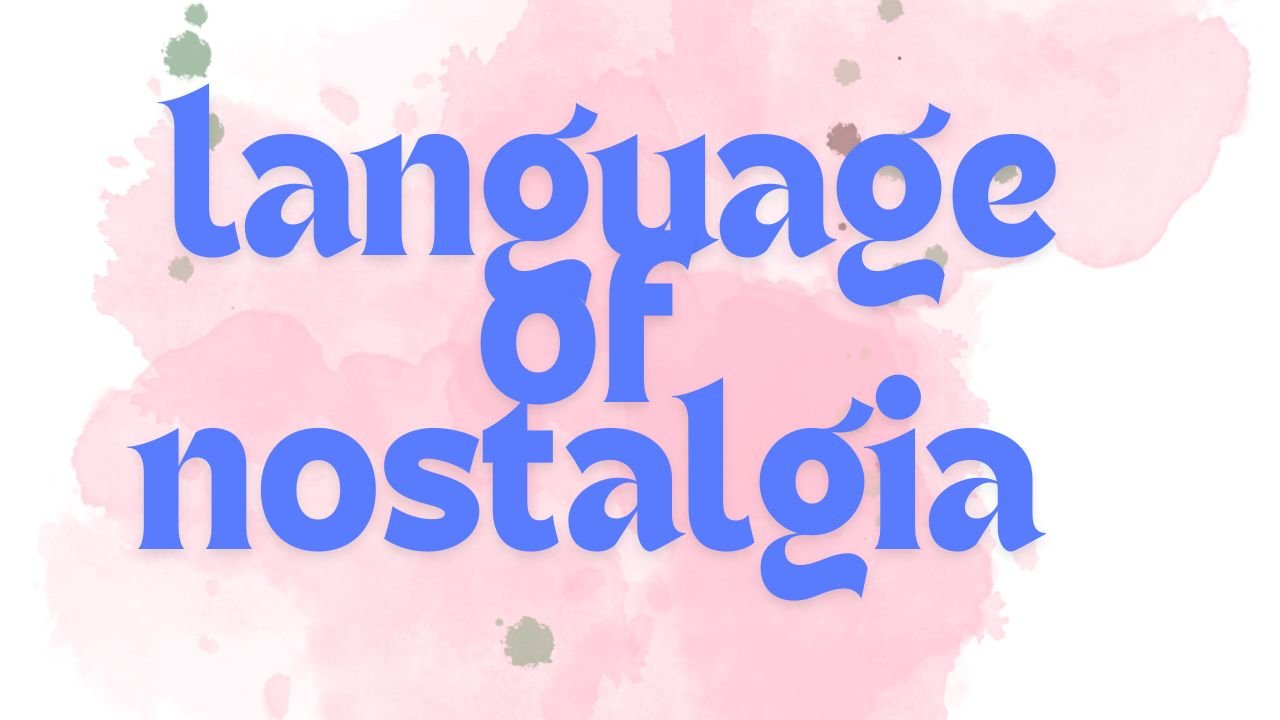Nostalgia, that elusive feeling of longing for the past, has a language of its own. It speaks in whispers of cherished memories, echoing through time, invoking emotions buried deep within our souls. In this article, we delve into the intricate tapestry of the language of nostalgia, unraveling its nuances and exploring its profound impact on our lives.
The Essence Language of Nostalgia
Nostalgia is more than just reminiscing; it’s a complex amalgamation of emotions, sensations, and memories. It transports us to a time when life seemed simpler, and every moment was imbued with magic. Whether it’s the scent of freshly baked cookies or the melody of a familiar tune, nostalgia has the power to evoke a profound sense of comfort and belonging.
Unraveling Memories
Memories are the building blocks of nostalgia, each one a precious thread in the fabric of our lives. From childhood adventures to fleeting moments of happiness, our memories shape who we are and how we perceive the world around us. The language of nostalgia is woven from these memories, each word carrying the weight of a thousand moments frozen in time.
The Power of Scent
They say that scent is the most powerful trigger of memories, and indeed, it holds a special place in the language of nostalgia. A whiff of a familiar fragrance can transport us back to our grandmother’s kitchen or the blooming garden of our childhood home. The scent of nostalgia lingers in the air, a silent reminder of days gone by.
The Melody of Time
Music has the ability to transcend time and space, weaving its way into the fabric of our memories. From the catchy tunes of our youth to the anthems that defined our coming of age, every song holds a special place in the language of nostalgia. With just a few notes, we can be transported back to a moment frozen in time, reliving the emotions as if they were yesterday.
Embracing Nostalgia
In a fast-paced world filled with constant change, nostalgia serves as an anchor to our past, grounding us in the familiar embrace of memories. Embracing the language of nostalgia allows us to reconnect with our roots, finding solace in the simple pleasures of days gone by. Whether it’s flipping through old photo albums or sharing stories with loved ones, nostalgia reminds us of who we are and where we come from.
Finding Comfort in the Familiar
In times of uncertainty, nostalgia offers a sense of comfort and stability. It reminds us that no matter how much the world may change, the memories we hold dear will always remain. The language of nostalgia is a soothing balm for the soul, offering respite from the chaos of modern life.
Building Bridges Across Generations
Nostalgia is a universal language that transcends age and culture, bridging the gap between generations. Whether it’s grandparents sharing stories of their youth or parents introducing their children to beloved childhood classics, nostalgia brings people together in a shared appreciation for the past. It fosters connections that span across time, creating a sense of continuity and belonging.
Frequently Asked Questions (FAQs)
What exactly is the Language of Nostalgia?
Nostalgia is a sentimental longing or affection for the past, typically for a period or place with happy personal associations.
Why do we experience nostalgia?
Nostalgia often arises in response to feelings of loneliness, boredom, or dissatisfaction with the present. It serves as a coping mechanism, providing comfort and solace by reconnecting us with cherished memories.
Is nostalgia always a positive emotion?
While nostalgia is often associated with warm, positive feelings, it can also evoke a sense of sadness or melancholy. This bittersweet quality is inherent in the nature of nostalgia, as it involves longing for something that can never be fully recaptured.
How does nostalgia affect our mental health?
Research suggests that nostalgia can have several positive effects on mental health, including boosting mood, increasing feelings of social connectedness, and enhancing self-esteem. However, excessive rumination on the past can also lead to feelings of discontent and dissatisfaction with the present.
Can nostalgia be harmful?
While occasional feelings of nostalgia are generally harmless, excessive dwelling on the past can interfere with our ability to engage fully in the present moment. It’s essential to strike a balance between reminiscing about the past and embracing the opportunities of the present.
Conclusion
In conclusion, the language of nostalgia is a powerful force that shapes our perception of the past and influences our present reality. It speaks to the essence of what it means to be human, reminding us of the beauty and complexity of life. By embracing nostalgia, we honor our past and enrich our present, weaving together the threads of memory to create a tapestry of meaning and significance.



